10 recommended articles about define() function
The define() function defines a constant. The function of the define() function is to define a constant. Constants are much like variables, except for the following differences: Constants [constant] and variables [variable] have many similarities, so it is easy to confuse them; below, we list the differences between constants [constant] and variables [variable] difference: •A constant's value cannot be changed after it is set A constant value cannot be changed after it is specified;•Constant names do not need a leading dollar sign ($) When setting a constant, there is no need to add a "$" sign in front; •Constants can b1. In-depth php defi
1. php defined() function usage summary
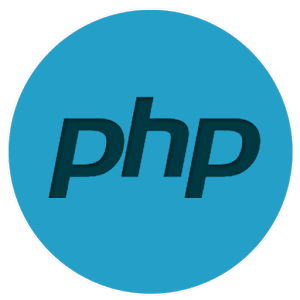
Introduction: The define() function defines a constant. The function of the define() function is to define a constant. Constants are much like variables, except for the following differences: Constants [constant] and variables [variable] have many similarities, so they are easy to confuse; below, we list the constants [constant]...
2. 10 recommended articles about the php define() function
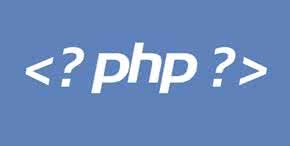
##Introduction: Use the define() function in PHP to define a constant. The so-called constant refers to a quantity whose value does not change. This article collects several articles about PHP constants. I hope it will be helpful to everyone's understanding of PHP constants. Let's take a look. 1. Detailed explanation of the definition and usage examples of PHP constants. We can understand constants as quantities whose values do not change. Once a constant is defined, it cannot be changed anywhere else in the program script. How to define constants: Constants are composed of English letters, underscores, and numbers. However, one thing to note is that the first letter of our constants cannot start with a number. In...
3. About the concept summary of php constants
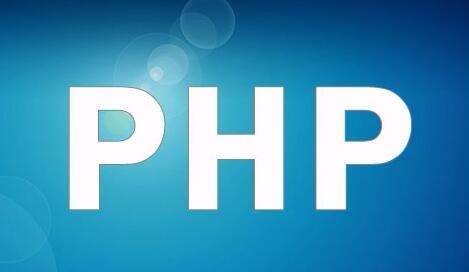
Introduction: Use the define() function in PHP to define a constant. The so-called constant refers to a quantity whose value does not change. This article collects several articles about PHP constants. I hope it will be helpful to everyone's understanding of PHP constants. Let's take a look.
4. PHP constant declaration and use - Detailed explanation of the definition method of php constants
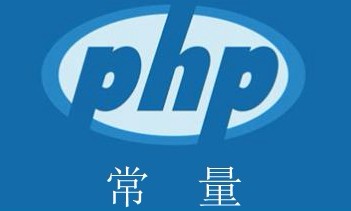
Introduction: Constants can be understood as unchanging quantities. Once a constant is defined, it cannot be changed anywhere else in the script. A constant consists of English letters, underscores, and mathematics. But numbers cannot appear as initial letters. Use the define() function to define constants in PHP. The syntax format is as follows:
5. php object-oriented guide to using the finalstaticconst keyword
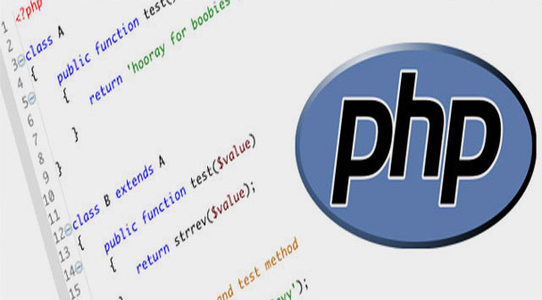
Introduction: This keyword can only be used to define classes and methods. The final keyword cannot be used to define member properties because Final means constant. We use the define() function to define constants in PHP, so final cannot be used to define member properties.

7. How to define and use constants in PHP_PHP tutorial
Introduction: How to define and use constants in PHP. 1. Custom constants* must be defined using the function define()* and their values cannot be changed after definition* Use the constant name directly when using it. You cannot add $s in front of it like a variable. For example: define("PI",3.
##Introduction : In-depth explanation of the usage of PHP define() function and defined() function. The define() function defines a constant. The function of define() function is to define a constant. Constants are much like variables, except for the following differences: Constants. [constan
##9.Discuss the php define() function and the detailed explanation of the use of the defined() function_PHP tutorial## Introduction: Discuss the detailed explanation of the use of PHP define() function and defined() function. The define() function defines a constant. The function of define() function is to define a constant. Constants are much like variables, except for the following differences: Constants. [constan
##10. Playing with php constants_PHP tutorial
Introduction: Playing with php constants. Naming rules: The same naming rules as variables. Method: define() function format: define (constant name, specific value); Example: define(PI,3.14); The comparison between constants and variables is the same: 1: Naming
【Related Q&A recommendation】:
Should define() be capitalized? Remember that in other PHP tutorials, define() is capitalized. , it seems that uppercase and lowercase are different, right? Can anyone please explain it
javascript - avalon2 page switching problem when single page
The above is the detailed content of 10 recommended articles about define() function. For more information, please follow other related articles on the PHP Chinese website!

Hot AI Tools

Undresser.AI Undress
AI-powered app for creating realistic nude photos

AI Clothes Remover
Online AI tool for removing clothes from photos.

Undress AI Tool
Undress images for free

Clothoff.io
AI clothes remover

Video Face Swap
Swap faces in any video effortlessly with our completely free AI face swap tool!

Hot Article

Hot Tools

Notepad++7.3.1
Easy-to-use and free code editor

SublimeText3 Chinese version
Chinese version, very easy to use

Zend Studio 13.0.1
Powerful PHP integrated development environment

Dreamweaver CS6
Visual web development tools

SublimeText3 Mac version
God-level code editing software (SublimeText3)

Hot Topics
 1664
1664
 14
14
 1423
1423
 52
52
 1321
1321
 25
25
 1269
1269
 29
29
 1249
1249
 24
24
 PHP and Python: Comparing Two Popular Programming Languages
Apr 14, 2025 am 12:13 AM
PHP and Python: Comparing Two Popular Programming Languages
Apr 14, 2025 am 12:13 AM
PHP and Python each have their own advantages, and choose according to project requirements. 1.PHP is suitable for web development, especially for rapid development and maintenance of websites. 2. Python is suitable for data science, machine learning and artificial intelligence, with concise syntax and suitable for beginners.
 PHP in Action: Real-World Examples and Applications
Apr 14, 2025 am 12:19 AM
PHP in Action: Real-World Examples and Applications
Apr 14, 2025 am 12:19 AM
PHP is widely used in e-commerce, content management systems and API development. 1) E-commerce: used for shopping cart function and payment processing. 2) Content management system: used for dynamic content generation and user management. 3) API development: used for RESTful API development and API security. Through performance optimization and best practices, the efficiency and maintainability of PHP applications are improved.
 PHP: A Key Language for Web Development
Apr 13, 2025 am 12:08 AM
PHP: A Key Language for Web Development
Apr 13, 2025 am 12:08 AM
PHP is a scripting language widely used on the server side, especially suitable for web development. 1.PHP can embed HTML, process HTTP requests and responses, and supports a variety of databases. 2.PHP is used to generate dynamic web content, process form data, access databases, etc., with strong community support and open source resources. 3. PHP is an interpreted language, and the execution process includes lexical analysis, grammatical analysis, compilation and execution. 4.PHP can be combined with MySQL for advanced applications such as user registration systems. 5. When debugging PHP, you can use functions such as error_reporting() and var_dump(). 6. Optimize PHP code to use caching mechanisms, optimize database queries and use built-in functions. 7
 The Enduring Relevance of PHP: Is It Still Alive?
Apr 14, 2025 am 12:12 AM
The Enduring Relevance of PHP: Is It Still Alive?
Apr 14, 2025 am 12:12 AM
PHP is still dynamic and still occupies an important position in the field of modern programming. 1) PHP's simplicity and powerful community support make it widely used in web development; 2) Its flexibility and stability make it outstanding in handling web forms, database operations and file processing; 3) PHP is constantly evolving and optimizing, suitable for beginners and experienced developers.
 PHP vs. Python: Understanding the Differences
Apr 11, 2025 am 12:15 AM
PHP vs. Python: Understanding the Differences
Apr 11, 2025 am 12:15 AM
PHP and Python each have their own advantages, and the choice should be based on project requirements. 1.PHP is suitable for web development, with simple syntax and high execution efficiency. 2. Python is suitable for data science and machine learning, with concise syntax and rich libraries.
 PHP and Python: Code Examples and Comparison
Apr 15, 2025 am 12:07 AM
PHP and Python: Code Examples and Comparison
Apr 15, 2025 am 12:07 AM
PHP and Python have their own advantages and disadvantages, and the choice depends on project needs and personal preferences. 1.PHP is suitable for rapid development and maintenance of large-scale web applications. 2. Python dominates the field of data science and machine learning.
 PHP vs. Other Languages: A Comparison
Apr 13, 2025 am 12:19 AM
PHP vs. Other Languages: A Comparison
Apr 13, 2025 am 12:19 AM
PHP is suitable for web development, especially in rapid development and processing dynamic content, but is not good at data science and enterprise-level applications. Compared with Python, PHP has more advantages in web development, but is not as good as Python in the field of data science; compared with Java, PHP performs worse in enterprise-level applications, but is more flexible in web development; compared with JavaScript, PHP is more concise in back-end development, but is not as good as JavaScript in front-end development.
 PHP and Python: Different Paradigms Explained
Apr 18, 2025 am 12:26 AM
PHP and Python: Different Paradigms Explained
Apr 18, 2025 am 12:26 AM
PHP is mainly procedural programming, but also supports object-oriented programming (OOP); Python supports a variety of paradigms, including OOP, functional and procedural programming. PHP is suitable for web development, and Python is suitable for a variety of applications such as data analysis and machine learning.




